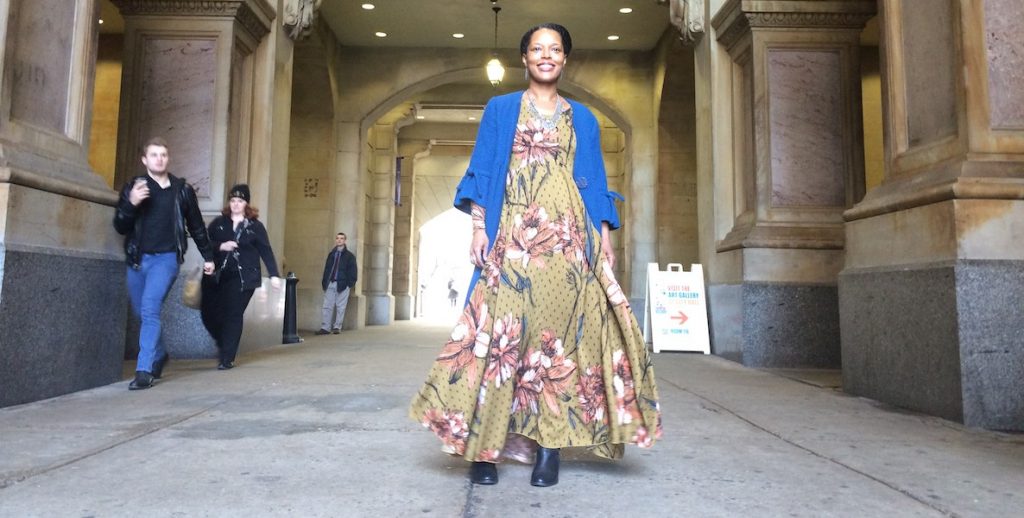I’ve spent a lot of time thinking about how poetry can be a public art.
In 1999, a collective of us poets, grad students, and neighbors in West Philly started a free reading series in a community church/thrift store. We read our poems to riders on the subway during rush hour. We went poetry “caroling” up Baltimore Avenue. We wrote poems in chalk on the sidewalk. Once upon a time we wrote up a mission and goals:
Poetry for the People (Philly) continues the work of poet June Jordan’s California-based organization of the same name. Poetry for the People is a collective comprised of students, activists, and community members who are committed to inciting collisions between poetry and activism. The collective seeks to engage Philadelphians of all backgrounds in an ongoing dialogue concerning the different forms and responsibilities the spoken and written word can take. Poetry for the People seeks to make poetry happen everywhere and in everything we do and especially for everyone.
Later, from 2006 to 2010, I directed a neighborhood poetry festival in Germantown’s Vernon Park as a way to build common ground between yo![]()
Now, in 2016, when people ask me what I’m going to do as the third Philadelphia Poet Laureate, I say, one way or another: “The same thing I’ve been doing.” And not with attitude (maybe a little), but with joy. Joy that I have the City behind me. That my past experiences with poetry in Philadelphia have expanded my heart and tuned my ears for this job, to feel and listen for all that’s really going down here poetically. And then to build with it.
Tonight, I’m leading an event at the Philadelphia Museum of Art called “City of Poetry.” It’s an evening of poetry and performance throughout the Museum. Visitors will explore a “City of Poetry,” with interactive workshops, pop-up poets, random acts of poetry, and games at poetry stations. The evening will feature performances by me and my band The Afroeaters as well as the 2016 Philly Youth Poetry Movement team.
Our City of Poetry has its own magic, its own brand of social and poetic justice, its own grand community of poets young and young-once, building row home rengas out of the lush life of our words.
“City of Poetry” isn’t intended to be a one-night stand. It’s an ongoing invitation to take part in the rich literary history that’s been and continues to be made in Philadelphia with over 70+ poetry organizations and—dare I say—thousands of poets. Few cities across the nation can claim the depth and diversity of our poetry scene or the die-hard participation of our audiences.
“City of Poetry” is a call to experience the delight, introspection, and connectivity that poetry provokes. In thinking about “City of Poetry” as an ongoing conversation and collaboration with Philadelphians, I envision the possibilities of mapping the city with and through poetry and exploring its intersection with seemingly divergent spheres and industries. Think poetry and/as municipal services, poetry and/as karaoke, or poetry and/as fashion!
To close a meeting this past March with activity leaders for the upcoming event at the PM
As a student of poetry, I learned that the poem you are writing or reading can open you, alter you, can be the catalyst for subterranean growth. In the precarious love in which the poem is communicated, it becomes a way of crossing and leaping boundaries. It becomes a chance to emotionally evolve. It turns strangers into kin. Our City of Poetry has its own magic, its own brand of social and poetic justice, its own grand community of poets young and young-once, building row home rengas out of the lush life of our words.
Come listen and build with us.
Yolanda Wisher is the city’s 2016-2017 Poet Laureate, as well as a 2016 Hedgebrook Writer-in-Residence and 2015 Pew Fellow. She also works as Chief Rhapsodist of Wherewithal for the U.S. Department of Arts and Culture.
Photo Header: Mark Palacio

